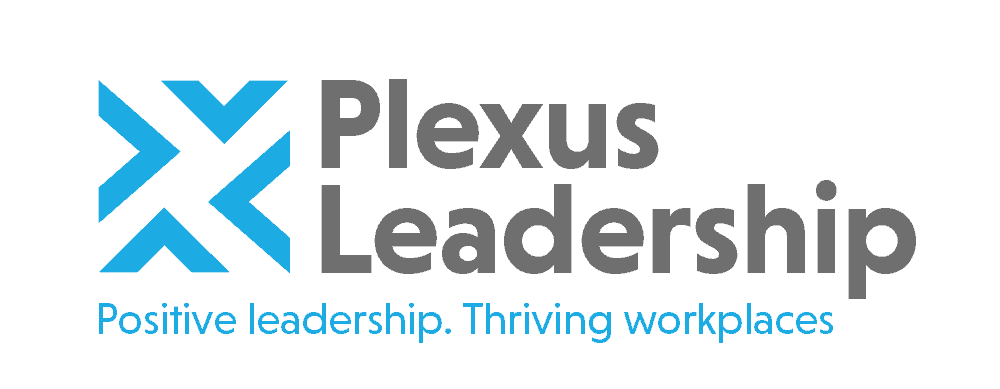I grew up in apartheid South Africa and witnessed the gross injustices and hugely damaging effects of apartheid and institutionalised racism. At university in the early 90’s I was given an opportunity to do research for the Centre for African Management into attitudinal resistance from whites towards black advancement. The findings were largely predicable. While many whites in positions of authority said the right thing about the need for black advancement, their attitudes and beliefs suggested deep prejudice and stereotypes about the abilities and potential of blacks to advance and perform effectively in senior roles. This attitudinal resistance was an invisible and impenetrable wall blocking attempts made to advance blacks and non-whites into more senior positions at the time.
Upon returning to the UK, I worked in employee relations and talent management roles in UK, USA and Scandinavia for global companies. For the past 15 years I have run several talent and leadership consulting businesses and worked extensively with leaders and leadership teams around the world. What has struck me over the years is the poor representation of blacks and other minority groups at the most senior levels in organisations. The reality is that there are simply too few blacks in executive and leadership positions. At leadership coaching and development conferences in the UK, we see a similar pattern. There are too few non-white faces among those tasked with developing the leaders of the future.
Despite the introduction of a wide range of laws against racism, deep systemic racism and prejudice are unfortunately still a malignant and stubborn cancer in the corporate world and society at large. It is often subtle and insidious, so it is difficult to pinpoint and tackle. But sometimes it surfaces, and we can see it for all its ugliness. Just look at the recent racist taunts of footballers in Europe, the income and employment inequalities between whites and blacks in the UK, US and many other developed economies and the disturbing pattern of brutality and excessive force against blacks, including the recent violent and tragic death of George Floyd. Although, it appears to be the minority perpetrating these injustices and racist attitudes, one wonders why in the 21st century, these beliefs and behaviours are still occurring with such frequency!
Although the relevant authorities in the US and other nations need to take action to stamp out racism in government departments and police forces once and for all, the problem is much broader. It is a systemic issue that every business leader should face up to and help tackle rather than standing on the side-lines saying the right things or doing nothing at all.
My experience suggests that the ‘tick box’ trend of offering unconscious bias training will not resolve racism in organisations. Neither will a token D&I department, although this is sometimes helpful to garner support, implement policies and co-ordinate programs. We have reached a tipping point where hollow words, endless debate and token gestures are not good enough. It is time for bold and concrete action.
What is required is a top management led program of activity that focuses on shifting organisational structures, cultures, and attitudes in significant and lasting ways. Actions that can make a real difference include:
1. Attracting and hiring talented blacks into senior leadership roles to break down racist beliefs and assumptions.
2. Recruiting more blacks and minorities into leadership development, graduate, and internship programs.
3. Inviting black leaders and role models in business, sport, and the arts to talk to employees about their experiences, including their challenges rising to the top and how they have overcome these. This type of exposure will help break down racist attitudes, build greater cultural understanding and forge stronger connections with black communities. This, in turn, can benefit the organization by opening new opportunities for hiring and winning new customers from those communities.
4. Reviewing BAME (Black, Asian and Minority Ethnic) workforce and leadership representation as part of the company’s talent and succession planning and development process. This will help build a more representative and inclusive leadership and talent pipeline. Although I am not a big fan of quotas, having ambitious diversity targets can help businesses fast-track progress of under-represented groups, including blacks, women, and other minorities into top leadership positions. Without targets and regular reviews linked to the top team’s scorecard, D&I falls off the radar and becomes a lower priority item that does not get sufficient attention or investment from the executive team.
5. Making sure job adverts and marketing campaigns always reflect images and voices from black and minority employees and customers, not just white faces.
6. Conducting regular remuneration reviews to ensure people are paid fairly and equally for the jobs they do, regardless of their ethnicity, gender, or other factors unrelated to job performance.
7. Training leaders and managers to build teams that value fairness and inclusion. They should also be trained on how to tackle any racist behaviour swiftly and firmly. If people get away with a gentle ‘rap on the knuckles’ when racist behaviour occurs, the culture will continue to perpetuate inappropriate racist beliefs and conduct.
It is time for business leaders everywhere to have the courage to step up and create a better society, a more just society where everyone feels valued, respected, included, and has equal opportunities to achieve their potential.
Nelson Mandela, one of the finest leaders in the past century, pointed out in his autobiography, Long Walk to Freedom:
“No one is born hating another person because of the colour of his skin, or his background, or his religion. People must learn to hate, and if they can learn to hate, they can be taught to love, for love comes more naturally to the human heart than its opposite.”
Because adults spend much of their waking lives at work, leaders and the company culture they create significantly shape how people think, feel and behave, at work and beyond. Through role modelling diversity and inclusion and implementing actions such as those outlined above, leaders can help people embrace respect for all, curiosity, understanding and decency. By building a truly diverse workforce and treating all people fairly and with dignity, businesses can gain a significant people advantage to accelerate growth and change.
Black Lives Matter. Equality and Dignity Matters.
Other Posts

About the Author
James Brook
Founder and MD | Leadership Consultant | Organizational Psychologist
James is a leadership consultant, organizational psychologist and executive coach. He has over 25 years’ experience working with leaders, teams and organizations globally to optimize their performance, talent and future success. He specializes in positive leadership, thriving workplaces, collaboration and influencing, organizational change and transformation, accelerating innovation and coaching executives and leaders in innovative sectors including Tech, Digital, E-commerce and Life Sciences.
Before setting up Plexus Leadership, James held leadership roles in HR and Talent Management in the UK and abroad with companies such as NatWest, Yahoo! and Novo Nordisk Pharmaceuticals. After this, he founded and led several talent and leadership consulting and assessment businesses, including Strengthscope®, an online strengths assessment and development business serving a wide range of UK and global clients. James grew this venture into a global market leader before selling the business in 2018.
James has supported, advised and coached leaders and teams globally across diverse industries and geographies. Clients he has worked with include Allen & Overy, Commvault, Equinor, Facebook, GSK, Hilton, John Lewis, Novartis Pharmaceuticals, NHS, Oracle, Sainsbury’s, Swiss Re, Tesco, Takeda Pharmaceuticals, WSP and Yahoo!.
James has a Master’s in Organizational Psychology, an MBA, an Advanced Diploma in Executive Coaching and a Harvard Business qualification in Sustainable Business Strategy. He is a member of the Institute of Directors, the Association of Business Psychologists and a Fellow of the Chartered Institute of Personnel and Development (FCIPD). He is currently undertaking a PhD in Organizational Psychology examining the start-up experiences of Tech and Digital entrepreneurs.
James is a regular contributor and speaker on leadership, coaching, innovative talent management and the future of work. His most recent book, Optimize Your Strengths, explores how leaders can create thriving workplaces by inspiring and supporting people to optimize their potential and teamwork to deliver breakthrough results.





